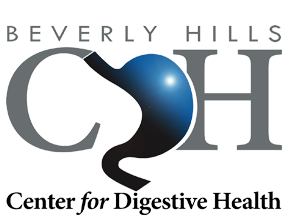Recognizing Signs of Celiac Disease
BOOK APPOINTMENTCeliac disease, sometimes called celiac sprue or gluten-sensitive enteropathy, is an immune reaction to eating gluten, a protein found in wheat, barley, and rye.
If you have celiac disease, eating gluten triggers an immune response in your small intestine.
Over time, this reaction damages your small intestine’s lining and prevents it from absorbing some nutrients (malabsorption).
The intestinal damage often causes diarrhea, fatigue, weight loss, bloating and anemia, and can lead to serious complications.
Effect of Celiac Disease on Children
Children with celiac disease are more likely than adults to have digestive problems, including:
- Nausea and vomiting
- Chronic diarrhea
- Swollen belly
- Constipation
- Gas
- Pale, foul-smelling stools
The inability to absorb nutrients might result in:
- Failure to thrive for infants
- Damage to tooth enamel
- Weight loss
- Anemia
- Irritability
- Short Stature
- Delayed puberty
- Neurological symptoms, including attention-deficit/hyperactivity disorder (ADHD), learning disabilities, headaches, lack of muscle coordination and seizures
Symptoms of Celiac Disease
The signs and symptoms of celiac disease can vary greatly and differ in children and adults. Digestive signs and symptoms for adults include:
- Diarrhea
- Fatigue
- Weight loss
- Bloating and gas
- Abdominal pain
- Nausea and vomiting
- Constipation
However, more than half the adults with celiac disease have signs and symptoms unrelated to the digestive system, including:
- Anemia, usually from iron deficiency
- Loss of bone density (osteoporosis) or softening of the bone (osteomalacia)
- Itchy, blistery skin rash (dermatitis herpetiformis)
- Mouth ulcers
- Headaches and fatigue
- Nervous system injury, including numbness and tingling in the feet and hands, possible problems with balance, and cognitive impairment
- Joint pain
- Reduced functioning of the spleen (hyposplenism)
How to Manage Symptoms of Celiac Disease
Celiac disease is a lifelong condition that has no cure.
However, people with this condition can manage their symptoms effectively by adhering to a strict gluten-free diet.
This means that any products containing wheat, barley, or rye must be eliminated, including any foods that may have been cross-contaminated, such as oats, unless they’re labeled as gluten-free.
Foods to Avoid
Here are a few other foods you should avoid unless they’re specifically labeled as gluten-free:
- Pasta
- Bread
- Cakes
- Pies
- Crackers
- Cookies
- Beer
- Dressings
- Sauces
- Gravies
Foods to Eat
Fortunately, there are plenty of nutritious and naturally gluten-free foods out there.
Cutting out processed foods, enjoying mostly whole foods and practicing label reading can make it much easier to follow a gluten-free diet.
Here are some foods that can be included in a healthy gluten-free diet:
- Meat, poultry, and seafood
- Eggs
- Dairy
- Fruits
- Gluten-free grains, such as quinoa, rice, buckwheat and millet
- Vegetables
- Legumes
- Nuts
- Healthy Fats
- Herbs and spices
Take Action
Celiac disease is a serious condition in which the immune system attacks the small intestine in response to eating gluten.
If left untreated, celiac disease can result in many adverse side effects, including digestive issues, nutritional deficiencies, weight loss, and tiredness.
If you suspect you have celiac disease, speak with your doctor about getting tested for food allergies and other conditions. The Center for Digestive Health treats many conditions that are linked to celiac disease. For example, an upper GI endoscopy can examine your digestive tract for any abnormalities caused by celiac.
Our Blogs
Accurate Diagnostics for Anorectal Strength and Function
Back to BlogsAre you having problems producing healthy bowel movements? The problem may be the muscles around your digestive tract either not coordinating properly or lacking strength. To get your GI problems addressed as soon as possible, visit the Beverly Hills...
Pelvic Floor Dysfunction?
Back to BlogsPelvic floor dysfunction is the inability to relax and coordinate your pelvic floor muscles to allow for smooth defecation. Fortunately, there are treatments available, including biofeedback, medications, and physical therapy. Reclaim strength and comfort...
Cutting-Edge, Compassionate Care Can Help You Find Hemorrhoids Relief
Back to BlogsHemorrhoids can be debilitating and painful, but treatment is available. If you’re suffering from hemorrhoids, make an appointment at the Beverly Hills Center for Digestive Health. We offer cutting-edge, compassionate care to help you find hemorrhoids...
Call to Schedule
Our office is available to answer your questions and evaluate your symptoms.

Phone
(310) 855-0222
Fax: (949) 404-6467
Hours
Mon - Fri: 9am – 5pm
Sat - Sun: Closed